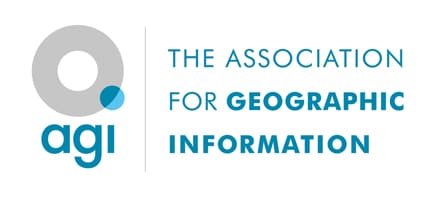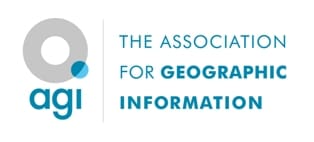There is no doubt that geospatial is already playing a key role in hitting net zero, but how can we make its contribution clear to those outside the geo-community?
Proving the benefits of geographic information and expertise is a recurring challenge and one which dominated debate at GeoCom19 on 24 October.
Whilst the case studies presented at The Royal Society show that we can walk the walk in terms of delivering value, the question for the audience was how can we also talk the talk to open doors to new opportunities beyond our immediate sector?
As our discussion panel noted, accessibility is important, not just for data availability and ease of use, but also in terms of communication. They urged us all to choose our words carefully to create conversations that describe what we do using unambiguous language free of acroynms and technicalities.
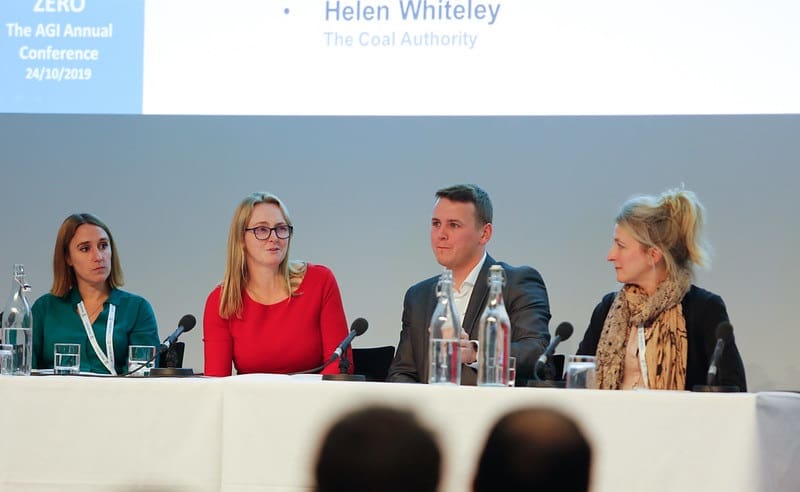
Sir Andrew Dilnot from the Geospatial Commission did just that, taking us straight to the heart of the issue by asking why we need geospatial data to meet global environmental challenges?
“Stuff is changing, we can’t just measure it once and know what it is,” he said. “The impact of climate change is felt differently across the world. It is the variation and difference that leads to understanding and power: geospatial data can help us understand the impact on people and manage this.”
The world has upped its ambition on climate change, Dr Rebecca Heaton from the UK Committee on Climate Change told the conference. The UK is not alone in setting a net zero target but is at the top end of global ambition. Historically, it has been responsible for more carbon emissions due to the industrial revolution but its rapid decarbonisation, particularly in the power sector, shows things can be done. “We all have a part to play,” she concluded.
Continuing the theme of collective responsibility, Martha McPherson, UCL Institute for Innovation and Public Purpose, posed the question: “How do we live not just a good life but a green good life?” The changes we need to make may be more obvious in our daily lives, but in a professional capacity, we can work together to shape the market by adopting new economic thinking with ‘missions’ to create long-term innovation.
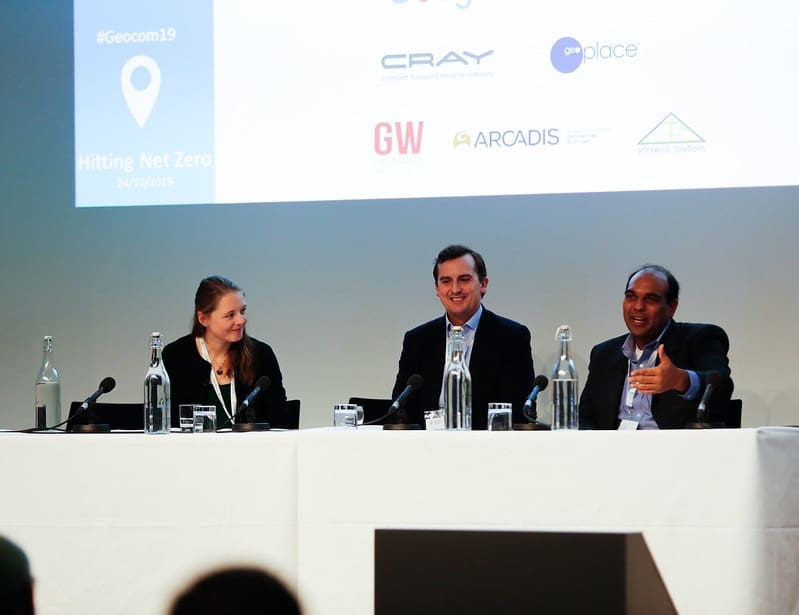
From CRAY Inc’s AI solutions for producing environmental patterns to help meet climate challenges and QualisFlow, an environmental management platform delivering sustainability alongside increased profitability and productivity, GeoCom19 also heard that innovation and daring to do things differently can reap many rewards for industry and individuals alike.
For example, cyclists inhale 4.5 times more pollution than that of pedestrians so Strava Metro used route data from those commuting by bike to identify patterns of poor air quality in cities, thus helping to encourage active mobility without risking people’s health.
Paul Campion from TRL, a global centre for innovation in transport and mobility, believes we’ve all got a lot to learn to achieve net zero but should start by asking how we want to live in 2050.
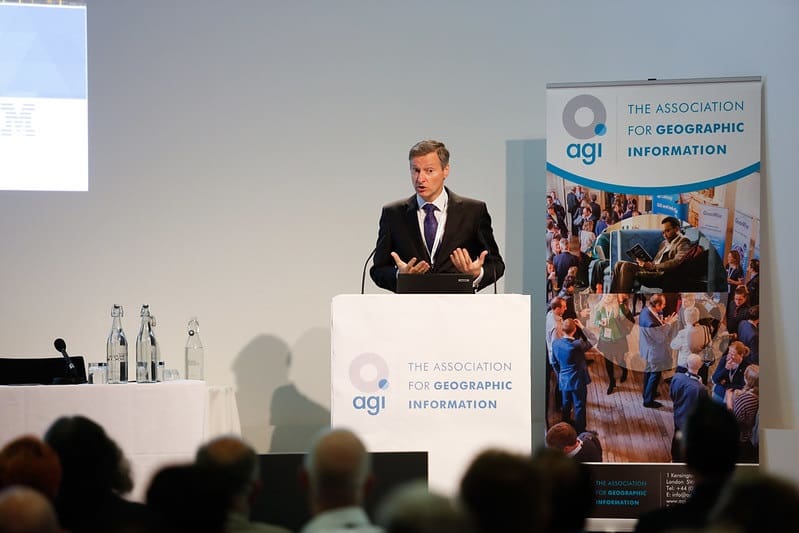
He told the audience that the barriers were not technological, although technology was part of the answer. “You can have anything you want, you just can’t have everything, it’s about choices, how we do things and behavioural drivers,” he said, adding that connecting Digital Twins creates opportunities to do things differently but needs collaboration.
Paul was picking up on the points made by Laura Sandys of the Energy Data Task Force. Laura’s presentation focused on creating a modern digitised infrastucture and highlighted the need to work together to fill gaps in skills. She told the conference that starting with a default that’s as open as possible will also maximise value as discovery, accessibility and understanding data are vital for both resilience and security.
A resilient future was also the theme of a thought-provoking and, at times, challenging keynote from Chris Tucker author of A Planet of 3 Billion and Chair of the American Geographical Society. Chris, who took delegates on a whistle-stop journey showing humanity’s impact on the planet, made the case that the earth’s ‘carrying capacity’ is limited to three billion people – a sobering statistic when you consider that the global population is fast approaching nine billion. He argued that we need to understand human geography in the context of physical and biogeography.
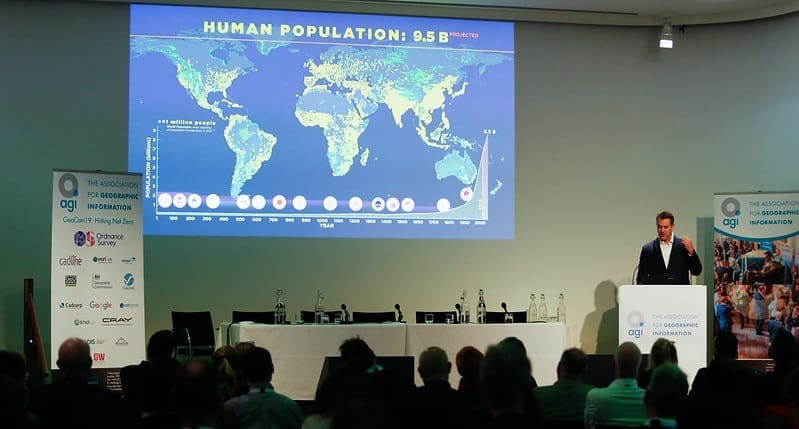
With the climate of change persisting, his conclusion that ‘we all have a part to play but only by thinking geographically can we truly understand the threats to humanity and planet that sustains us’ encapsulates the opportunity the geospatial sector must now seize to prove its worth and relevance.
Call it what you will – geospatial, place or location – our information has never been more relevant or important. We are all leaders, we need to elevate and channel our sense of excitement and energy beyond our own community. We need to collaborate and communicate. It’s time to get uncomfortable, to take risks and take this incredible thing we do to others. Be brave, have a conversation, make a difference and let’s show the world we mean business.
AGI members can log in to access presentations from the day here.
